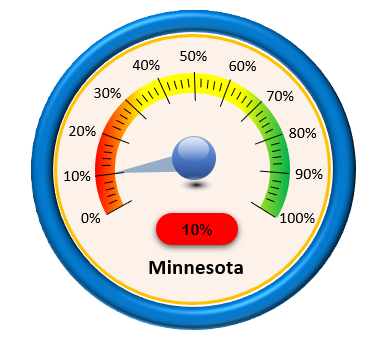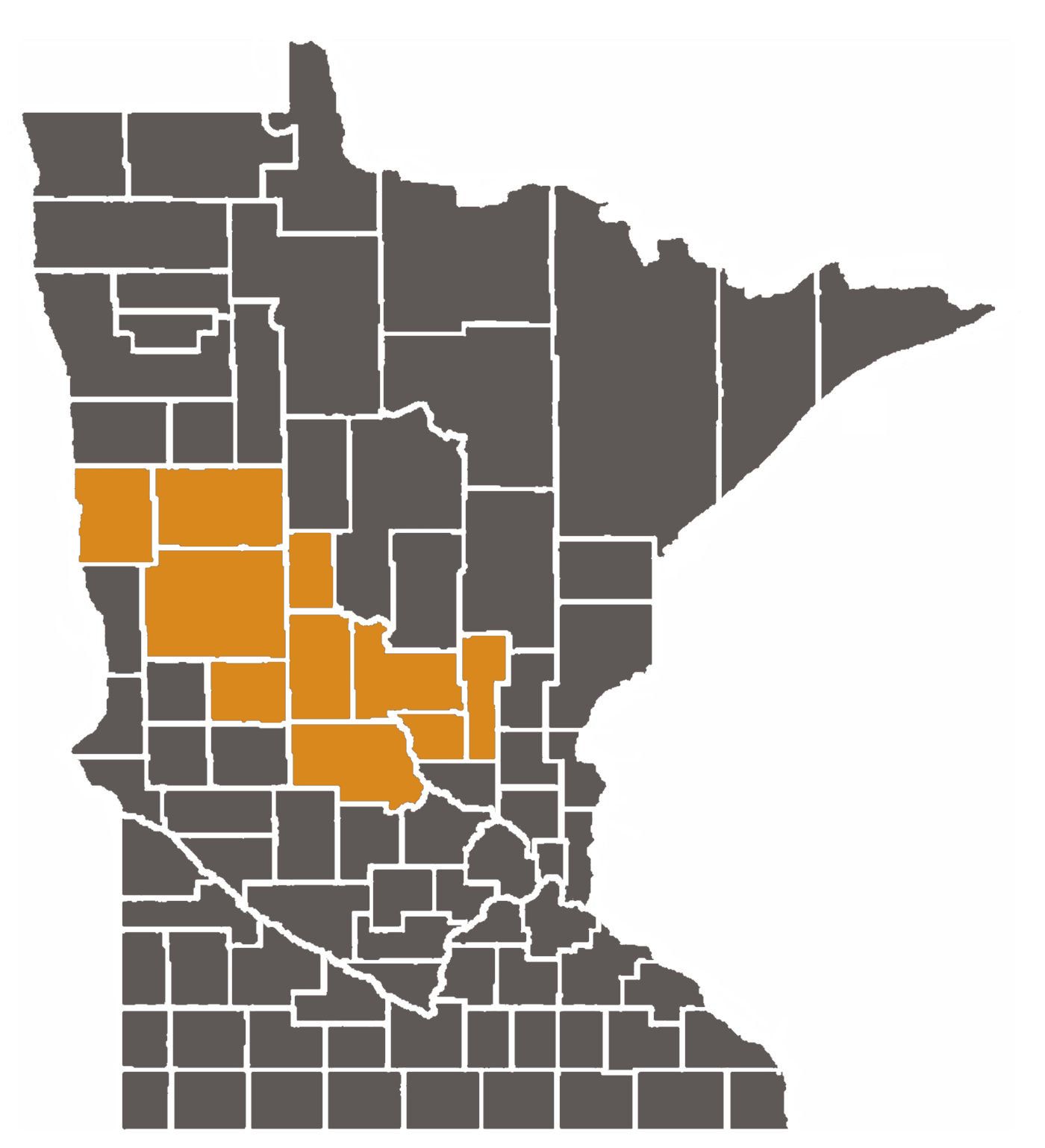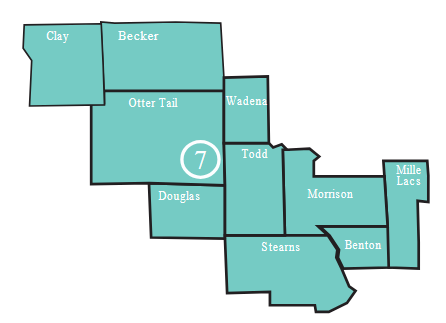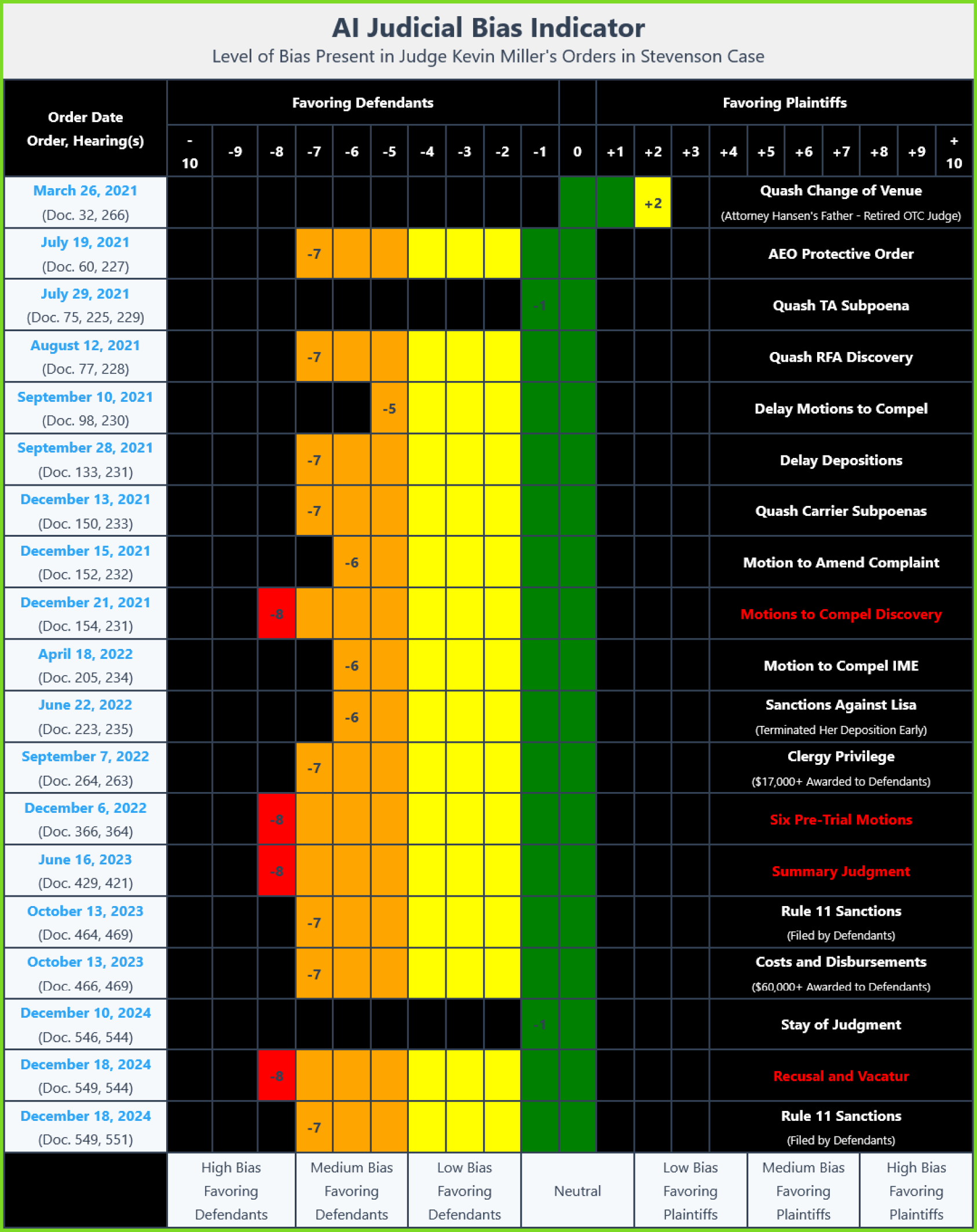Seeking Justice in Otter Tail County
Is Justice a Right — or a Weapon of the Powerful?
We are Craig and Marie Stevenson from Fergus Falls, Minnesota. This website was born from our firsthand experience with a judicial system that betrayed us and the very principles it claims to follow and defend. In Otter Tail County, we did not encounter a process grounded in truth, fairness, or impartiality. Nor did we find a system that respected or protected our constitutional rights. Instead, we faced a legal process distorted by favoritism, tainted by undisclosed relationships, and corrupted by a persistent disregard for the rules and selective enforcement of the law.
The evidence from our case suggests that the judicial system in Otter Tail County is beyond repair. The image to the right presents a visual summary of an Artificial Intelligence (AI) analysis of the key court orders in our case. For each ruling, AI evaluated the level of judicial bias based on the order’s content and the corresponding hearing transcript. The results speak volumes about a system that is supposed to be fair. A full-size version of the table shown in the image can be viewed [here]. AI analysis summaries for each order are available using the blue links in the table on the page.
This platform exists to hold the Otter Tail County and Minnesota judicial systems accountable and to warn others who may naively believe that the system here is fair. What happened to us should not—and must not—happen to anyone else.
U.S Supreme Court Justice Louis Brandeis once wrote, “Sunlight is said to be the best of disinfectants.” It’s time to shine that light where it’s long been needed.
Featured Blog Post
Newest Blog Posts (Swipe left/right on mobile devices to scroll.)
Our Current Confidence Levels
in the Otter Tail County (OTC) and Minnesota (MN) Judicial Systems


“Justice requires that the judicial process be fair and that it appear to be fair; it necessarily follows that a presiding judge must be impartial and must appear to be impartial.“
State v. Pratt, 813 N.W.2d 868, 878 (Minn. 2012)
“[Judges] should aspire at all times to conduct that ensures the greatest possible public confidence in their independence, impartiality, integrity, and competence.“
Preamble to the Minnesota Code of Judicial Conduct
Topics Covered Here:
Select a category tab to reveal specific topics in that category.
♦ Did Delays and Omissions in a Forensic Report Undermine Our Case? [AI Analysis]
♦ Did Judge Miller Allow the Use of an Undisclosed Document During a Deposition? [AI Analysis]
♦ Did Judge Miller Apply Discovery Rules Consistently? [AI Analysis]
♦ Did Judge Miller Apply Independent Medical Examination Rules Consistently? [AI Analysis]
♦ Did Judge Miller Apply Privilege Rulings Consistently? [AI Analysis]
♦ Did Judge Miller Deny a Discovery Extension Based on Out-of-State Case Law? [AI Analysis]
♦ Did Judge Miller Ignore and Allow the Coordinated Deletion of Evidence? [AI Analysis]
♦ Did Judge Miller Improperly Quash Evidence and Threaten Sanctions? [AI Analysis]
♦ Did Judge Miller Issue Prejudicial Discovery Rulings? [AI Analysis]
♦ Did Judge Miller Properly Deny our Motion to Amend the Complaint? [AI Analysis]
♦ Did Judge Miller Properly Deny Our Request for a Discovery Conference? [AI Analysis]
♦ Did Judge Miller Treat Medical Records and Phone Records the Same Way? [AI Analysis]
♦ Did Judge Miller’s Unequal Treatment Undermine the Discovery Process? [AI Analysis]
♦ False or Misleading Statements (Characterizing Craig’s Email) [AI Analysis]
♦ False or Misleading Statements (Clerk Morrison’s Employment) [AI Analysis]
♦ False or Misleading Statements (Plaintiffs’ Discovery Efforts) [AI Analysis]
♦ Judge Miller’s Key Orders in Our Case [AI Analysis]
♦ What Are the Top Egregious Actions by Judge Miller Against Plaintiffs? [AI Analysis]
♦ Can a False Theft Accusation Be Considered Defamation? [AI Analysis]
♦ Did Judge Miller Cherry-Pick Facts at Summary Judgment? [AI Analysis]
♦ Did Judge Miller Consistently Apply Material Fact Analysis at Summary Judgment? [AI Analysis]
♦ Did Judge Miller Employ Revisionist History to Justify His Decisions? [AI Analysis]
♦ Did Judge Miller Grant Summary Judgment While Ignoring Key Evidence? [AI Analysis]
♦ Did Judge Miller Have an Ethical Obligation to Recuse Himself? [AI Analysis]
♦ Did Judge Miller Ignore Cited Case Law Supporting a Claim? [AI Analysis]
♦ Did Judge Miller Ignore Contradictory Testimony at Summary Judgment? [AI Analysis]
♦ Did Judge Miller Ignore Critical Evidence in his Summary Judgment Ruling? [AI Analysis]
♦ Did Judge Miller Ignore Critical Evidence Regarding Emails/Texts? [AI Analysis]
♦ Did Judge Miller Ignore Critical Evidence Regarding Publication? [AI Analysis]
♦ Did Judge Miller Ignore Critical Evidence? (Multiple Omissions) [AI Analysis]
♦ Did Judge Miller Ignore Critical Spoliation Evidence at Summary Judgment? [AI Analysis]
♦ Did Judge Miller Ignore Forensic Evidence of Deleted Messages? [AI Analysis]
♦ Did Judge Miller Ignore Key Evidence to Dismiss an Emotional Distress Claim? [AI Analysis]
♦ Did Judge Miller Misapply the Restatement (Third) of Torts? [AI Analysis]
♦ Did Judge Miller Misapply the Summary Judgment Standard? [AI Analysis]
♦ Did Judge Miller Mischaracterize Evidence and Ignore Backup Data? [AI Analysis]
♦ Did Judge Miller Mischaracterize Testimony and Ignore Evidence Deletion? [AI Analysis]
♦ Did Judge Miller Omit Key Case Law Language? [AI Analysis]
♦ Did Judge Miller Omit Key Words from Quotes in His Orders? [AI Analysis]
♦ Did Judge Miller Overlook an LPCC’s Role at Summary Judgment? [AI Analysis]
♦ Did Judge Miller ‘s Relationship With a Law Clerk Undermine His Impartiality? [AI Analysis]
♦ Did Judge Miller Set Aside Undisputed Material Facts in Summary Judgment? [AI Analysis]
♦ Did Judge Miller Use Ellipses and Omitted Facts in His Orders? [AI Analysis]
♦ Did Judge Miller’s Language Cross the Line from Neutral to Disparaging? [AI Analysis]
♦ Do Irregularities in Judge Miller’s Orders Extend Beyond the Stevenson Case? (Planned)
♦ Was Judge Miller’s Ruling Driven by Outcome-Based Jurisprudence? (Planned)
♦ What Rules and Ethical Guidelines Must Judges Follow? [MN Code]
♦ Where Do I Report Judicial Misconduct? [More Info]
♦ Did Judge Miller’s Law Clerks Have Any Ethical Obligations or Duties? [AI Analysis]
♦ Do Judicial Law Clerks Have a Duty to Disclose Potential Conflicts of Interest? [AI Analysis]
♦ Did Judge Miller Ignore Protective Order Violations? [AI Analysis]
♦ Did Judge Miller Misapply Case Law to Override Spousal Privilege? [AI Analysis]
♦ Did the Minnesota Court of Appeals Review Our Case Thoroughly? [AI Analysis]
♦ Was Judgment Properly Entered Only After a Writ Was Filed? [AI Analysis]
♦ Was the Appeals Court Affirmance a De Novo Review or a Rubber Stamp? [AI Analysis]
♦ What ethical obligations do court employees have? (Planned)
♦ What rules govern Minnesota civil lawsuits? [MN Rules]

“The quest for truth should alarm no one.“
Craig S. Stevenson
“The truth is in the gaps.“
Craig S. Stevenson


Seventh Judicial District Counties

Justice-Denied.org Conventions
Accuracy:
We strive to be honest and accurate in our statements and we continually update this site with new information and more citations to the record.
We also try to be minimalist in our conclusions. Although we certainly have our own opinions, in many instances we have chosen to input the original data, from actual court documents, into Artificial Intelligence (AI) and let it provide a fair and balanced analysis.
Artificial Intelligence:
This website uses Artificial Intelligence (AI) extensively to deliver fair, neutral, and objective analysis.
AI reviews of judicial orders and decisions aim to align with prevailing law and assess whether all parties were treated fairly and impartially, consistent with the Minnesota Code of Judicial Conduct.
AI-generated content or background information is clearly marked with a green border.
Our current AI analyses are powered by ChatGPT from OpenAI.
Citations:
Citations to public court documents are denoted by the document number and the location. For example: (Doc. 429, at 22-25.)
Unless otherwise noted, these document numbers correspond to the index number on the Minnesota Court Records Online (MCRO) website for case number 56-CV-20-2928. Most of these documents are freely available to the general public.
Citations to confidential court documents are denoted by using red text. For example: (Doc. 316.) These documents are not available to the general public.
Case law citations are denoted by italicized text. For example: Complaint Concerning Winton, 350 N.W.2d 337, 340 (Minn. 1984)
Hyperlinks:
Blue text is used to denote a hyperlink, which takes you to another website or to a different page or location on this website when clicked.
The text [AI Analysis] is used to denote a link to a page on this website that contains a detailed Artificial Intelligence (AI) Analysis of our own experience surrounding a particular issue.
Quotations:
Quotations by legal authorities and famous persons are denoted by a text box with a gold background.
Quotations from public court documents, Minnesota Statutes, Secondary Legal Authorities, and Artificial Intelligence (AI) queries are denoted by blockquoted text consisting of a blue vertical bar. For example:
(“[I]mpartiality is the very foundation of the American judicial system.”). “To maintain public trust and confidence in the judiciary, judges should avoid the appearance of impropriety and should act to assure that parties have no reason to think their case is not being fairly judged.”
State v. Henry, No. A06-671, 2007 WL 1470179, at *4 (Minn. Ct. App. May 22, 2007)

